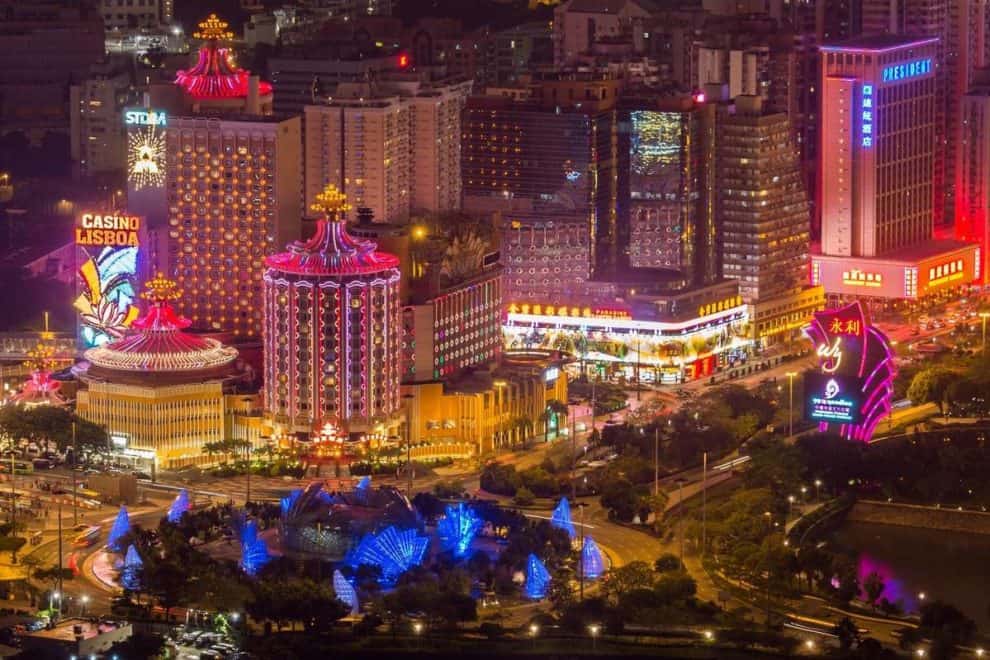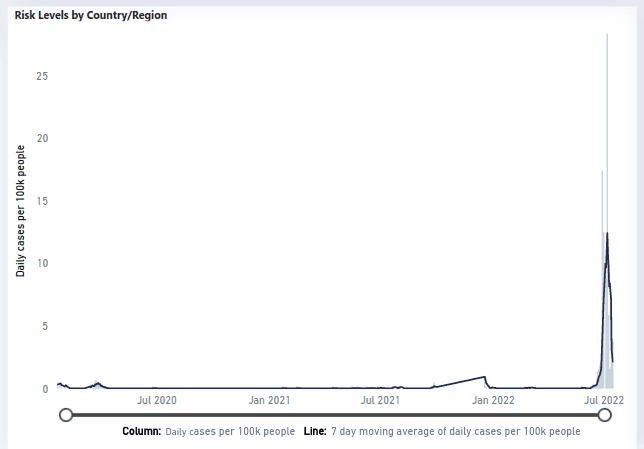
- Macau’s casino shutdown has been extended for five days. It was originally set for a week to help mitigate a persistent COVID-19 outbreak in the Asian gambling epicenter.
- Gaming revenue accounts for 80% of the city’s income and they’ve not recovered fully since the start of the COVID-19 pandemic.
- Macau is following China’s COVID mitigation strategy which seeks to completely eliminate the virus. Experts have questioned the wisdom and feasibility of this scenario.
While the gaming industry in North America has almost completely recovered from the COVID-19 pandemic induced nightmare, the same can’t be said for Asia. Macau’s revenues have flatlined for over a year now due in large part to travel restrictions from the Chinese mainland and throughout Asia. Unfortunately, their problems aren’t over as evidenced by last week’s government mandated shutdown of the Macau gaming industry. The shutdown was originally scheduled for a week to help mitigate an outbreak of COVID-19 on the island but has now been extended for five more days.
The 41 casinos in Macau are estimated to lose more than $1 billion USD during the shutdown. The government has said that it will distributed $1.24 billion USD to businesses that have been hurt by the shutdown. That infusion of cash will help, but the gaming industry’s problems go way beyond that. An article in today’s Las Vegas Review-Journal sets the stage–and it isn’t a pretty scenario for the gaming industry:
As part of the lockdown because of COVID-19, authorities have suspended dine-in services and ordered all residents to avoid leaving their homes unless absolutely necessary. Those who need to go out must wear KN95 masks or similar protection.
The public is required to register for passes to ride buses and other public transportation, which are operating at reduced capacity.
The raw numbers don’t appear to be especially problematic. Macau has a population of 680,000 and recorded 31 infections on Friday. On the Global Epidemics website operated by the Brown University School of Public Health, the Macau Special Administrative Region (SAR) is shown as having a moving average of 1.5 cases per 100,000 people–there are 130 countries with higher 7 day moving averages.

The moving 7 day average of new cases in the Hong Kong Special Administrative Region is significantly higher than Macau at 39.1 per 100,000 people. In an international context, however, that’s not particularly bad either as 50 countries have higher rates of new cases.
The most salient issue is China’s uncompromising strategy against COVID-19. Most countries have reached the point where they’re trying to live with the virus as they would any other endemic disease. There have been outbreaks here and there but for the most part life has returned to some semblance of normalcy in most Western nations. China, by contrast, is pursuing what has been described as a ‘COVID-zero’ policy. The crux of their strategy is to isolate every infected person instead of taking measures against a wide spread. An article from BBC.com explains:
While the rest of the world is trying to live with Covid, China is the only major economy still prioritising the fight against the virus above almost everything else.
So-called zero Covid measures involve mass testing, tracking and strict isolation. Just a handful of cases can spark a city-wide lockdown.
Beijing has had only a few infections recently but its more than 21 million residents are required to queue for PCR tests every three days to access public buildings and even corner shops.
When a Covid case is confirmed, a whole suburb can be swiftly cordoned off. It’s been especially hard for businesses – shops, bars and restaurants can be seen pulling down shutters for good.
Everyone in China is living under a cloud of uncertainty. It’s difficult to make plans, and it makes one wonder how much longer people will put up with this.
There’s plenty of skepticism among medical professionals around the world concerning the ‘COVID-zero’ policy. Their view is that it’s unrealistic, unfeasible or both. The Chinese government isn’t especially welcoming of dissent, which means that the COVID-zero policy is in effect until further notice. The US companies that own properties on the island–Wynn Resorts, MGM Resorts and Las Vegas Sands–are in a precarious position as well. The government of Macau is in the process of renewing casino licenses by the end of the year. The US companies have had ‘no comment’ since they don’t want to any renewal issues caused by taking exception with the closure. Better eat the losses in the short term than to not have their licenses renewed altogether.









